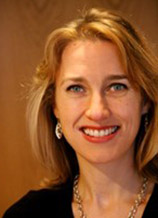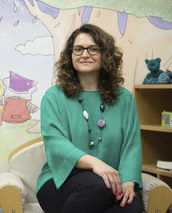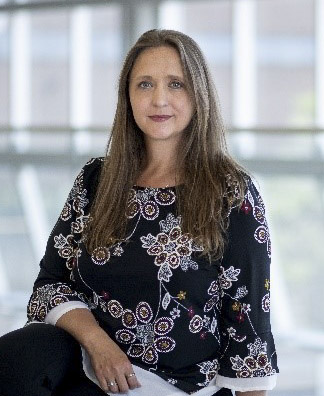Registraire de l’agrément
Stewart Madon, Ph.D., C.Psych.
accreditation@cpa.ca
Tel: 613-237-2144 ext. 333
The members of the CPA Accreditation Panel for 2023 – 2024 are:
Douglas Cane received his Ph.D. in Clinical Psychology from Western University in London, Ontario. He has been a member of the Accreditation Panel since 2015, and is the 2022-23 Chair. He has been active in clinical training for the past 32 years and previously was the Director of Clinical Training for the Queen Elizabeth II Health Sciences Centre Psychology Residency Program for 10 years. He has also served as a member at large and as Secretary-Treasurer for CCPPP. He is an Assistant Professor in the Department of Department of Anesthesia, Pain Management and Perioperative Medicine, Dalhousie University and is a Fellow of the Association of Psychologists of Nova Scotia. His clinical work involves providing psychological services to individuals with ongoing pain.

Dr. Niki Fitzgerald completed her PhD in clinical psychology at the University of Windsor. She joined the Accreditation Panel in 2019 after serving as a site visitor. She is a clinical psychologist in the Work, Stress, and Health Program at the Centre for Addiction and Mental Health (CAMH) where she treats and assesses individuals injured at the workplace and assists clients reintegrate into the workforce. She supervises all levels of psychology trainees as well as psychiatry residents. She is the Director of Training for the CAMH residency program. She is a Lecturer in the Psychiatry Department at the University of Toronto, as well as Clinical Lecturer, in the Graduate Department of Psychological Clinical Science, University of Toronto, Scarborough. Since 2010 she has held Diplomat Status with the Academy of Cognitive Therapy. In 2016, Dr. Fitzgerald became a certified Road to Mental Readiness (R2MR) facilitator and was a clinician facilitator of this program for two local paramedic services. Outside of psychology, Dr. Fitzgerald is an avid runner and aspiring endurance triathlete.
Dr. Williams is the Canada Research Chair for Mental Health Disparities at the University of Ottawa in the School of Psychology. Her work focuses on ethnic minority mental health and psychopathology research. She completed her undergraduate studies at MIT and UCLA and received her doctoral degree from the University of Virginia. She completed her psychological internship at Montreal General Hospital. She was an Assistant Professor at the University of Pennsylvania for four years, followed by five years at the University of Louisville, where she served as Director of the Center for Mental Health Disparities. She also was at the University of Connecticut for three years, where she held joint appointments in Psychological Sciences and Psychiatry
Dr. Virginia Tze received her Ph.D. in School and Clinical Child Psychology from the University of Alberta. She is an Assistant Professor in the Department of Educational Administration, Foundations and Psychology at the University of Manitoba. Prior to joining the professoriate position, Dr. Tze had practiced as a school psychologist in Winnipeg, Manitoba. Her research focuses on social-emotional learning, including emotional management, attribution theory, self-regulation, and cultural diversity.
Dr. Christina Rinaldi is a Professor in the College of Social Sciences & Humanities at the University of Alberta and the Scientific Director for the Canadian Center for Mentoring Research. Her particular expertise is in the area of developmental social and emotional psychological functioning and wellbeing, parenting, parent-child relationships, and early childhood school readiness. Her research interests include studying how critical relationships (family, mentors) support children and youth social and emotional learning, development, and overall wellbeing. A common thread across all of her research and career has been the drive to enhance youth development and wellbeing through social connection.
Sheila Garland completed her PhD in Clinical Psychology at the University of Calgary and her predoctoral residency at the Calgary Clinical Psychology Residency (CCRP) program. After that, she completed a three year CIHR funded post-doctoral fellowship at the University of Pennsylvania in Philadelphia before joining the faculty in the Department of Psychology at Memorial University. She is an associate professor and Director of Clinical Training for the Doctor of Psychology (PsyD) program. She is a registered psychologist in the province of Newfoundland and Labrador and has a vibrant externally-funded clinical research program in the areas of psychosocial oncology, behavioral sleep medicine, and digital health.
BIO AND PICTURE FORTHCOMING
BIO AND PICTURE FORTHCOMING
Role of the Panel: The principal function of the Panel is to uphold the standards of education and training in professional psychology (defined in the Standards section of the Accreditation Manual) as it exercises judgment in making decisions about programmes that have applied or re-applied for accreditation. In addition, the Panel (with delegation to the Registrar):
- develops and disseminates the documents necessary to guide and assess programmes throughout the accreditation process
- coordinates and reviews annual reporting of programmes throughout the terms of their accreditation
- trains site visitors to participate in the accreditation process
- consults to its many publics (e.g., programmes, students, consumers) on matters related to accreditation
- consults to the Board, and any delegated governance, on matters related to accreditation
- undertakes any action, permitted by its Standards and Procedures, necessary to carrying out its functions as outlined above
Composition of the Panel: The Panel is comprised of 9 members, appointed by the CPA Board, for staggered 3-year terms that may be extended for up to 3 more years. One of the members is elected by the Panel as Chairperson, and one of the members is a doctoral student in clinical psychology, counselling psychology, school psychology, or clinical neuropsychology and is a student member of CPA. The student has completed at least 1 year of graduate study and will remain a student for the 3-year term on the Panel. The student member assumes the same roles and responsibilities of any Panel member, aside from acting as Chairperson. As a group, the Panel members represent the specialities (i.e., clinical psychology, counselling psychology, school psychology, and clinical neuropsychology), types (i.e., doctoral or internship), and geographic locations of the programmes accredited by the CPA. In addition, the Panel endeavours to have other dimensions of diversity represented among its members.
Become a CPA Accreditation Panel Member: Panel members conduct reviews of programme applications throughout the year, and the Panel formally meets twice yearly (Spring and Fall) in Ottawa, with all travel expenses covered by CPA. At these times of the year acting as a Panel reviewer requires a high level of commitment and involvement. However, Panel membership is also an extremely interesting and rewarding experience. As the number of accredited programmes in Canada grows, we continually have a need for new Panel members.
To apply to serve as a Panel member, the following requirements must be met:
- hold membership in CPA and other psychological associations
- are currently, or have recently been, a faculty/staff member, or affiliate in some official capacity, of a doctoral or internship programme
- are knowledgeable about professional and scientific issues in psychology
- hold licensure/certification, where appropriate
- are active in their academic/professional careers
- possess a doctoral degree and have completed a doctoral-level internship at accredited programmes or their equivalents
To nominate yourself or another person to serve as a member of the CPA Accreditation Panel, please submit a CV and letter of interest to the Registrar at accreditation@cpa.ca.







